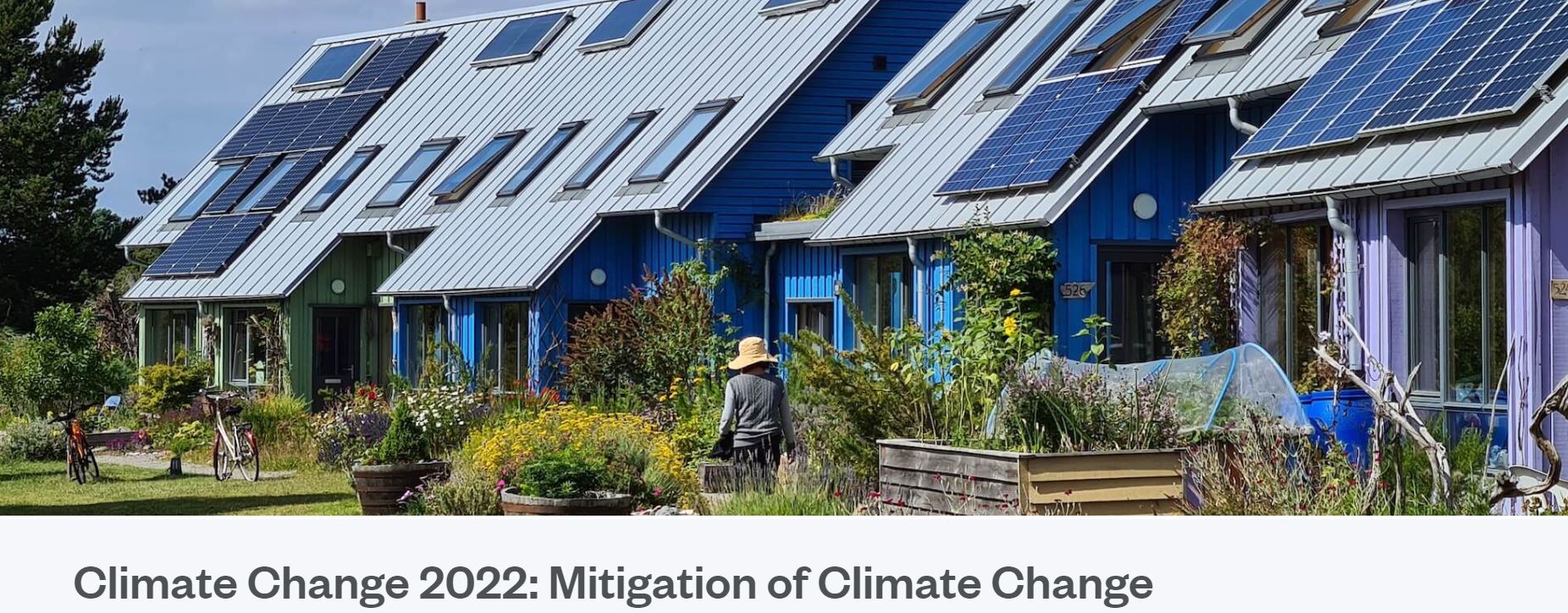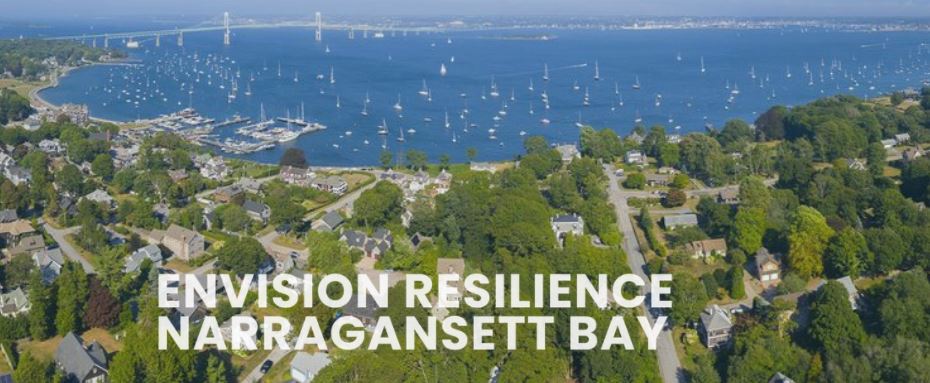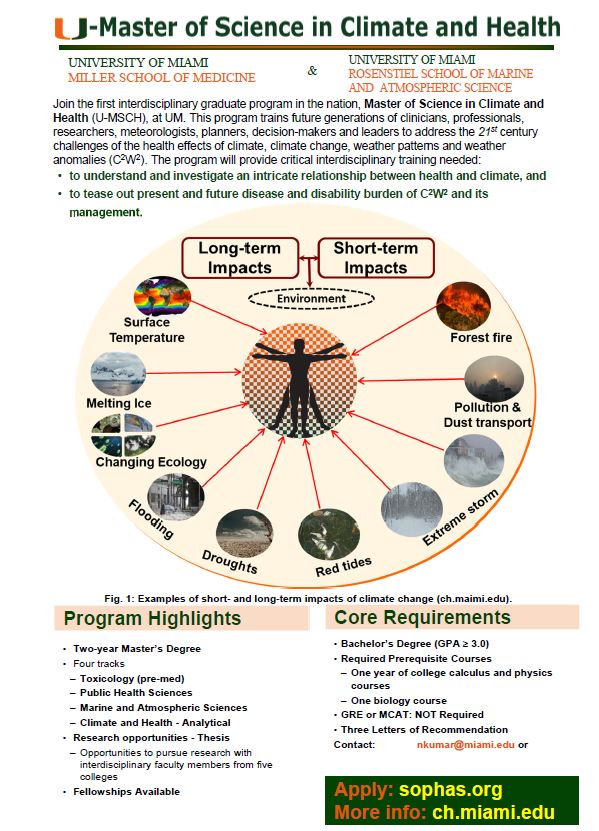Headline News Archive
The U.S. Global Change Research Program (USGCRP), in collaboration with the Office of Science and Technology Policy, requests comment from the public on its draft Decadal Strategic Plan.
USGCRP seeks feedback on program priorities and accompanying narrative in the strategic pillar sections. Respondents should consider (i) ideas on emerging, large-scale scientific questions related to global change and/or societal response, especially those where interagency collaboration will be critical; (ii) specific information on how science is or is not being used to inform societal response to global change, and why; and (iii) knowledge gaps and obstacles to implementing scientific tools or knowledge.
Please refer to the Federal Register Notice for full information.
Individuals wishing to participate in the public review of the draft 2022–2031 USGCRP Strategic Plan must register via the USGCRP Review and Comment System to access the draft.
The deadline to submit comments is 11:59 PM ET on July 15, 2022.
Geoengineering is often framed as a tool for climate justice. Our study challenges that idea, showing that solar geoengineering would create regional tradeoffs and potentially increases in malaria risk worldwide.
Our study is the first to project the impacts of solar geoengineering - an emergency intervention to reduce the effects of global warming, in theory particularly for vulnerable frontline populations - on an infectious disease. We focus on malaria, which doesn’t increase linearly with temperature (i.e., warmer isn’t necessarily more malaria; cooler isn’t necessarily less).
In any scenario, geoengineering will probably shift malaria risk around continents, creating regional trade-offs in health outcomes within the Global South. But in the kind of extreme warming scenario where geoengineering might be most appealing, we find that deploying geoengineering would increase (or rather, reverse a decline of) malaria population at risk by roughly a billion people.
The study raises fairly major questions given that geoengineering is often framed around life-saving solutions for poor and vulnerable populations. The study was funded by a project called DECIMALS that revolves around projecting impacts of geoengineering on developing countries (and giving them more of a voice in the science - our project is a collaboration with icddr,b in Bangladesh and the Climate Risk Lab at the University of Cape Town), and highlights the need to bring the health sector into those conversations.
Carlson CJ, Colwell R, Hossain MS, Rahman MM, Robock A, Ryan SJ, et al. Nat Commun. 2022;13: 2150.
doi:10.1038/s41467-022-29613-w
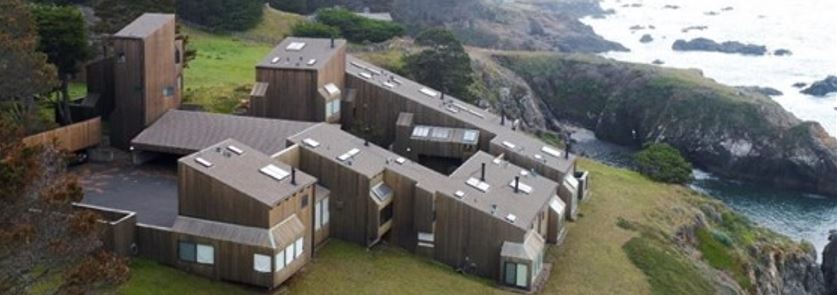
The UF Architecture senior studio, led by Jeff Carney, participated in the Envision Resilience Challenge again this year. Carolyn Cox of the FCI facilitates the academic programming that includes 7 university teams (URI, RISD, Brown, Northeastern Syracuse, U Florida, and Roger Williams) looking at the Narragansett Bay in Rhode Island to address climate impacts. 14 students from UF Architecture, 6 from UF Historic Preservation led by Linda Stevenson, and 3 from Journalism led by Cynthia Barnett have worked together toward solutions while better understanding diverse disciplinary approaches and team dynamics.
Stay tuned for final products that will be part of the multi-university exhibition held at the Waterfire Arts Center in Providence, RI from June 3-30.

In response to warming winters, mangroves have been expanding and displacing salt marshes at varying degrees of severity in parts of north Florida, Louisiana, and Texas. A paper published in Global Change Biology, led by Michael Osland (USGS) with contributions from 21 coauthors including Mike Allen (NCBS); and Joe Marchionno (UF ESSIE PhD student), reviews the current understanding of impacts of mangrove range expansion on wetland ecosystem services. The authors identify knowledge gaps and research needs related to ecological and societal concerns over mangrove range expansion. While mangrove range expansion can produce beneficial changes to wetland ecosystem services (e.g., improved coastal fish and wildlife habitat), it also can produce detrimental changes to other services (e.g., loss of coastal views, impacts to property values). These service trade-offs are an important consideration for coastal managers due to the scale of their impacts. The paper summarizes the important implications of mangrove expansions given climate change.
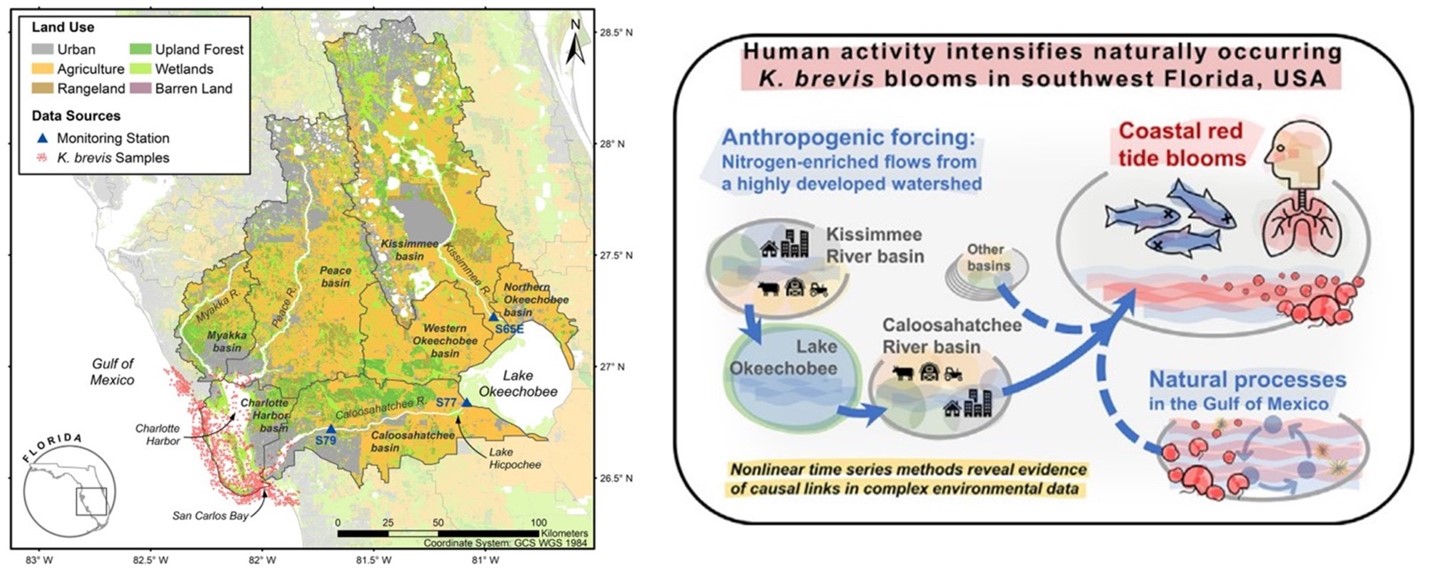
Red tide blooms occur naturally in the Gulf of Mexico, but human activity can make them worse once they reach Florida's coast, according to new research led by research scientist Dr. Miles Medina. The peer-reviewed study, published in Science of the Total Environment, links red tide blooms near Charlotte Harbor to nitrogen-enriched flows from the Caloosahatchee River, Lake Okeechobee, and upstream areas.
"Our study is the first to find evidence of what many have long suspected--that nitrogen inputs from the watershed make red tides more intense and make them last longer," said Dr. Medina.
The results indicate that human activity has consistently played a role in red tide intensification during the past decade, suggesting that we can reduce the severity, duration, and impacts of red tides through management of land-based nutrients and discharges.
On Monday, April 4, the Intergovernmental Panel on Climate Change (IPCC) released a landmark scientific report focused on mitigating climate change.
Climate change mitigation refers to actions that slow the rate of climate change by:
· reducing or stopping heat-trapping emissions, or
· removing heat-trapping greenhouse gasses from the air
The Working Group III report provides an updated global assessment of climate change mitigation progress and pledges, and examines the sources of global emissions. It explains developments in emission reduction and mitigation efforts, assessing the impact of national climate pledges in relation to long-term emissions goals.
The IPCC has published a technical summary and a summary for policymakers in addition to the full report.
CRIS (Community Resiliency Information Systems) is designed to identify unique resiliency needs by combining biophysical vulnerability to sea level rise, flooding and storm surge as well as socio-economic vulnerabilities at the neighborhood level, so solutions (including access to resources and information) can be customized by neighborhood to ensure equitable resiliency. This unique and interactive resiliency tool combines physical data (including, storm surge, sea-level rise and flooding), environmental hazards (including various environmental justice (EJ) indices) and socio-economic data from the census, with live survey data to map and reveal patterns of risks and highlight specific resiliency issues associated with natural hazards in our area. In addition, sensor data (currently only weather and air quality sensor data) are also fed into the system and displayed in real-time. CRIS, by virtue of being fully online and compatible with smart phone interface, fosters transparency and accessibility of information and comparison across neighborhoods that is needed for informed advocacy and resource allocations to address unique needs communities in the context of climate change and extreme weather events.
A short video overview of CRIS is available here:
https://www.youtube.com/watch?v=FAYikhQrj7M
Kathe Todd-Brown, Ph.D., an assistant professor in the Department of Environmental Engineering Sciences within the Engineering School of Sustainable Infrastructure & Environment, has been awarded the National Science Foundation’s (NSF) CAREER award to improve the predictive understanding of soil carbon dynamics by connecting different theories with diverse measurements.
More details can be found here:
https://www.essie.ufl.edu/todd-brown-receives-nsf-career-award-to-predict-soil-carbon-dynamics/

A team of University of Florida (UF) faculty members has been awarded a grant of $1.6 million to study the impact of climate change in West Africa, the Minerva Research Initiative announced on Friday 24 February 2022. The project, Social & institutional determinants of vulnerability & resilience to climate hazards in the Sahel, was one of seventeen grants selected from 220 applications in this year’s competition.
The research team aims to understand and explain the variations in responses to the effects of climate change in the region. It is comprised of an interdisciplinary group of scholars affiliated with the UF Sahel Research Group, including project P.I. Leonardo A. Villalón, Professor of African Politics and currently Dean of the International Center and Associate Provost, and co-P.Is Sarah McKune (Global & Environmental Health and African Studies) and Renata Serra (African Studies), with contributions by Gregory Kiker (Agricultural and Biologial Engineering) and Steven Radil of the US Air Force Academy.
The three-year research project will focus on the six countries of the Sahel region of West Africa: Senegal, Mauritania, Mali, Burkina Faso, Niger and Chad. These are among the least developed countries on earth according to United Nations rankings, and highly susceptible to the effects of climate change. In the past decade they have also been subject to intense pressures from many sources, including violent extremist movements. Yet the region also shows continued sources of resilience among its diverse populations, drawing on its historical models of adapting to uncertainty.
“Understanding the factors shaping how the countries of the Sahel will adapt to the effects of climate change is of critical importance for the livelihoods of the people of the region,” Villalón notes, “and it also has major implications for the entire global community in our increasingly interconnected world.”
The Minerva Research Initiative, launched by the US Secretary of Defense in 2008, supports university-based social science research aimed at improving basic understanding of the social, cultural, behavioral, and political forces that shape regions of the world of strategic importance to the U.S.

The U.S. National Science Foundation (NSF) has awarded a $12.8 million four-year cooperative agreement to Florida International University’s Extreme Events Institute to support the design of a national full-scale testing facility capable of wind speeds of up to 200 miles per hour, combined with a water basin to simulate storm surge and wave action.
This Mid-scale Research Infrastructure-1 (MsRI-1 DP) project is formally titled “Mid-scale RI-1 (M1:DP): National Full-Scale Testing Infrastructure for Community Hardening in Extreme Wind, Surge, and Wave Events (NICHE).”The NICHE is intended to become part of NSF’s Natural Hazards Engineering Research Infrastructure (NHERI) – a distributed, multi-user national facility that provides the natural hazards engineering research community with access to research infrastructure that includes earthquake and wind engineering experimental facilities, cyberinfrastructure (CI), computational modeling and simulation tools, high performance computing resources, and research data, as well as education and community outreach activities.
FIU’s academic partners for the NICHE project include the University of Florida, Oregon State University, Stanford University, the University of Notre Dame, the Georgia Institute of Technology, the University of Illinois at Urbana-Champaign, Colorado State University, and Wayne State University. The principal industry partner is Aerolab.
You can read more about this project here.
New IPCC report does not mince words.
The Working Group II contribution to the IPCC (Intergovernmental Panel on Climate Change) Sixth Assessment Report assesses the impacts of climate change, looking at ecosystems, biodiversity, and human communities at global and regional levels. It also reviews vulnerabilities and the capacities and limits of the natural world and human societies to adapt to climate change.
“This report is a dire warning about the consequences of inaction,” said Hoesung Lee, Chair of the IPCC. “It shows that climate change is a grave and mounting threat to our wellbeing and a healthy planet. Our actions today will shape how people adapt and nature responds to increasing climate risks.”
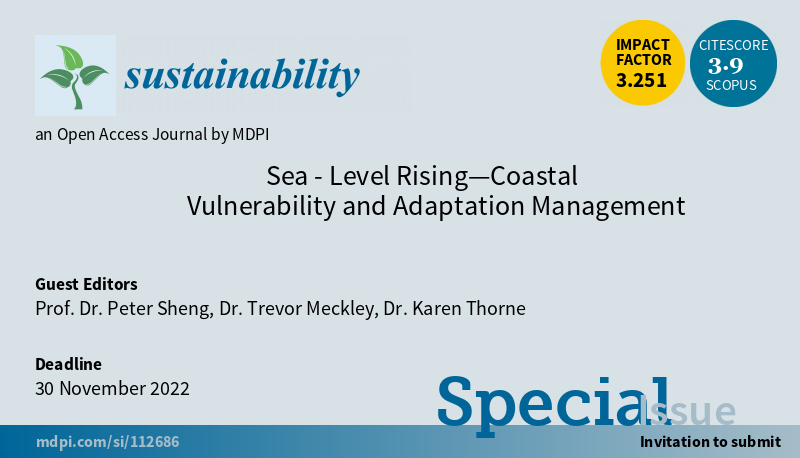
You are encouraged to contribute a research or comprehensive review article for consideration for publication in a Special Issue "Sea-Level Rising - Coastal Vulnerability and Adaptation Management" of Sustainability, an international Open Access journal which provides an advanced forum for research findings in areas related to sustainability and sustainable development. The journal publishes original research articles, reviews, conference proceedings (peer-reviewed full articles) and communications.
Accelerating sea-level rise, compounded with more intense and wetter cyclones and growing coastal development, are expected to greatly increase the vulnerability of coastal communities, critical infrastructures, and coastal resources including wetlands, beaches, and coral reefs which offer protection to coastal hazards. There is an urgent need to develop a new framework and paradigm for coastal vulnerability analysis based on the best available science and a holistic approach which addresses the compound impact of various drivers and their interactions in the remainder of the 21st century. Based on the results of science-based vulnerability analysis, coastal communities can develop adaptation management plans including the restoration of wetlands and coral reefs, the revision of flood management standard and building codes, the development of future coastal flood maps, strategic migration, etc.
Deadline for manuscript submissions: November 30, 2022
Details on the special issue, including guest editors and how to submit manuscripts, can be found here.
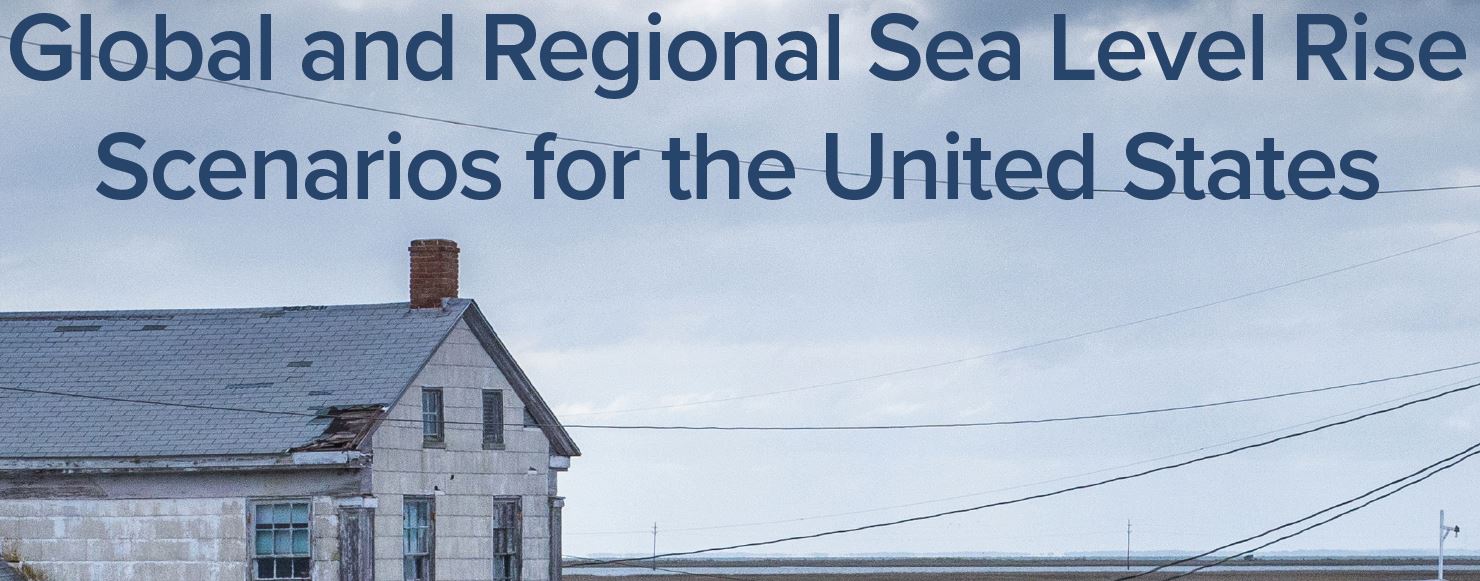
On February 14, 2022, NOAA along with other interagency collaborators released the Sea Level Rise Technical Report providing the most up-to-date sea level rise projections available for all U.S. states and territories. The updated data offers projections out to the year 2150 and information to help communities and decision-makers assess potential changes in average tide heights and height-specific threshold frequencies as they strive to adapt to sea level rise. These new and updated projections fill in the gaps in information for some rural and underserved regions.
The Technical Report is the latest product of the Interagency Sea Level Rise and Coastal Flood Hazard and Tool Task Force which includes NOAA, EPA, NASA, USGS, and USACE. Additional support was provided by the U.S. Department of Defense Strategic Environmental Research and Development Program.
Listen to Episode 52 of NOAA Ocean Podcast where two members of the Federal Sea Level Rise Task Force discuss the new Sea Level Rise Technical Report. Find out more information on this report at https://oceanservice.noaa. gov/slr
The Florida Climate Center has released their 2021 year-end annual weather and climate summary for the state of Florida. 2021 saw continued warmth across the state, tying with 2018 as the 8th-warmest year in the instrumental record. 2021 marked the 11th year in a row with above-average temperatures statewide, and 21 out of the past 22 years have been warmer than the historical average in Florida. Many counties recorded one of their top 10 warmest years on record. The statewide average precipitation in 2021 was 56.14 inches. This total ranked 48th-wettest in the instrumental record dating back to 1895. Winter and spring rainfall were below the 20th century average, while summer and fall were above average. Hurricanes Elsa and Ida and Tropical storm Claudette contributed to excessive rainfall across the western Panhandle and parts of north-central Florida.
Also, NOAA released their 2022 State Climate Summaries this month. “These state summaries offer up-to-date, local perspectives on climate in each state. The State Climate Summaries spell out recent local conditions for each state and provide insights about the state’s climate outlook based on historical trends and future projections.”
Read the NOAA Florida State Summary.
For the 2nd year, UF students from Architecture, Historic Preservation, and Journalism will participate in the Envision Resilience Challenge. FCI Coordinator, Carolyn Cox, has been working with the ReMain Nantucket team again to provide this opportunity for UF students to collaborate across disciplines and across universities. This year, students will collaborate with other teams from Northeastern, RISD/Brown, Roger Williams, Syracuse, and U Rhode Island in looking at the Narragansett Bay under sea level rise and climate impacts.
Professors Jeff Carney, Linda Stevenson, and Cynthia Barnett will lead students who will all get the chance to travel to Rhode Island, hear from national/international experts on the complex challenges facing RI, present to an esteemed jury of principals in architecture, design, and engineering firms, and share their designs and research to the communities in June. This opportunity will broaden perspectives, enhance collaboration skills, and provide valuable experience engaging with communities and peers around climate adaptation and resiliency.
Stay tuned for updates and follow along with the speaker series.
By Brendan Rivers
President Joe Biden signed a $1 trillion infrastructure bill into law last week that includes billions earmarked for climate solutions.
For reaction to the massive federal investment, I turned to one of Florida’s top climate scientists, Jayantha Obeysekera, director of the Sea Level Solution Center at Florida International University. Professor Obeysekera has worked on sea level rise projections for the Department of Defense and chaired the committee that developed the Southeast Florida Regional Climate Compact.
While he believes the new law will help states like Florida address climate change, he doesn’t think it goes far enough.
“Frankly, all of this funding is probably not adequate. When you look at holistically what is needed, even in infrastructure, it might not be adequate,” he said. “But I think it’s a great first step.”
Advancing Climate Adaptation and Coastal Community Resilience
CPO’s newly launched Adaptation Sciences (AdSci) Program has announced 20 new 2-year projects in Fiscal Year 2021 focused on vulnerable U.S. coastal communities planning for the future impacts of flooding in the context of climate change and other stressors.
The competitively selected projects include The Resilient305 Collaborative: Advancing Hyperlocal, Replicable, Impact-driven, Adaptation Science through Resilience Learning led by two FCI universities.
- The PIs will leverage the Resilent305 Collaborative to implement community-engaged research, with an iterative co-design/co-production approach, that advances hyperlocal, impact driven adaptation science to inform a Resilience Learning System replicable in other coastal metropolitan areas. They hypothesize that co-design/co-production of flood resilience actions (e.g., projects, programs, and policies) driven by community priorities, comprehensive metrics and resilience learning will yield cross-sectoral, quality of life benefits of flood resilience investments and in turn, more effective resilience strategies.
- Lead PIs: Tiffany Troxler, The Florida International University Board of Trustees; and Amy Clement, University of Miami
- Co-PIs: Jayantha Obeysekera, Maria Ilcheva, Edward Murray, and Susan Jacobson (Florida International University); William Solecki and Erin Friedman (City University of New York, Hunter College); James Murley (Miami-Dade County); Scot Evans and Katharine Mach (University of Miami)
Rock Aboujaoude, Jr., a 24-year-old UF graduate student, will host these Nov 1-12 daily conversations at 7pm on Zoom/Facebook/YouTube. See below for link to register.
Aboujaoude, a UF interdisciplinary ecology master’s student, will be connected live through Zoom from Glasgow, Scotland where the U.N. Climate Change Conferences convenes and will provide live updates each night until the U.N. conferences wrap up Nov. 12. Aboujaoude will be on the ground tracking down delegates to interview and invite to speak at the daily briefings. In the past, he has tracked down Al Gore, Harrison Ford, John Kerry and the U.N. Secretariat.
Few nations are on track to reach the target goals set by the Paris Climate Accords if innovation and change aren’t demanded immediately, Aboujaoude said. Failure to achieve the goals will likely result in more than the suggested global warming limit of well below 2 degrees Celsius. “Pressuring world leaders is the best way to get this done,” Aboujaoude said. “There’s no better time to get the world leaders to pay attention than at an actual climate summit.” Aboujaoude believes the university will pioneer student involvement with U.N. climate conference delegates.
“UF students will be able to participate in a much grander scale than any year previously with the negotiations,” Aboujaoude said. “We can encourage student participation in the largest climate conference that the world has.”
The Paris Agreement works on a 5-year cycle. With the last adoption in 2015, Aboujaoude decided to propose this special event. He also wants to boost involvement now that the U.S. has officially rejoined after former President Donald Trump’s withdrawal in 2017.
Aboujaoude said he hopes to have similar conferences at UF and other U.S. universities in the future. “It’s young people who stand to lose the most at this stage in our life if the climate crisis isn’t solved,” Aboujaoude said. “This is our moment to shine.”
Students as well as non-students can register for the conference and receive a meeting link from the Campus Climate Corps website.
Also follow Climate Central as a great source for the conference:
Check out our guide to next week's UN Climate Change Conference—and see what the outcomes could mean for future warming at 240+ stations across the U.S.



